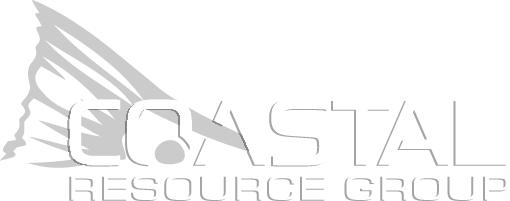Oil & Gas
PVC & CPVC – Applications and Uses in the Oil and Gas Industry
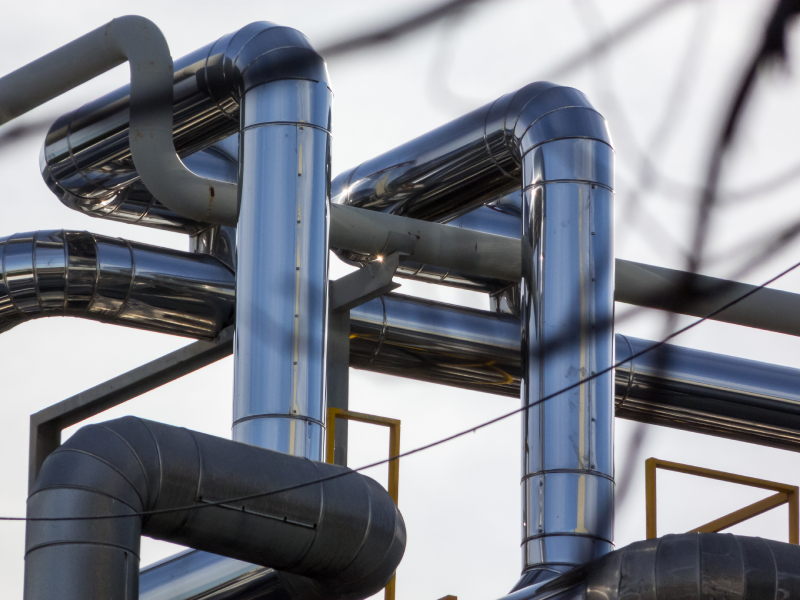
PVC and CPVC pipes are valued for their corrosion resistance, chemical durability, and lightweight properties. These pipes are commonly used for transporting water, chemicals, and other non-flammable fluids in upstream, midstream, and downstream operations. PVC is often utilized in drainage systems, protective conduit for cables, and low-pressure applications, while CPVC, with its higher temperature tolerance, is ideal for handling hot brine, corrosive fluids, and certain process lines. Their non-metallic nature also reduces the risk of rust and scale buildup, contributing to cleaner systems and reduced maintenance. While not suitable for high-pressure or flammable fluid transport, PVC and CPVC pipes provide safe, cost-effective alternatives for specific support systems in oil and gas operations.
Wastewater & Water Industry
PVC & CPVC – Applications and Uses in the Wastewater & Water Industry
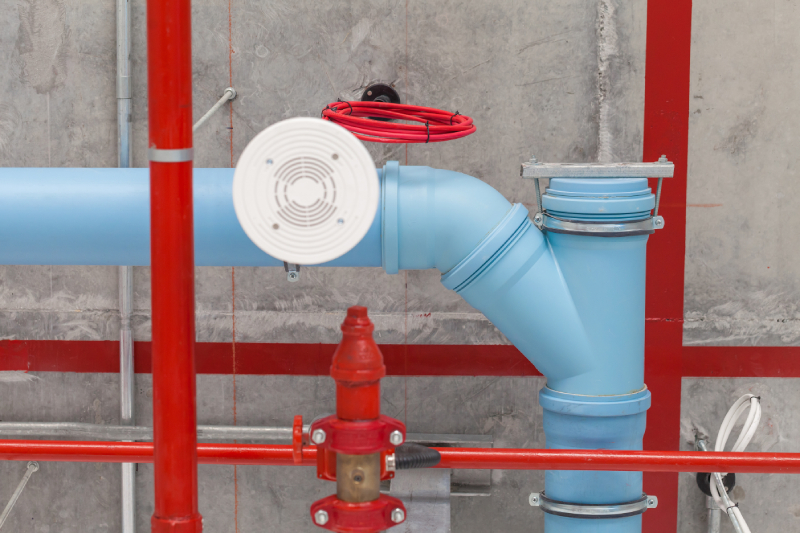
PVC and CPVC pipes play a crucial role in the wastewater and water industry due to their excellent chemical resistance, durability, and ease of installation. PVC pipes are widely used for transporting wastewater, stormwater, and potable water because they resist corrosion from soil and sewage, ensuring long-term reliability with minimal maintenance. CPVC pipes, with their ability to handle higher temperatures and more aggressive chemicals, are often used in water treatment facilities and industrial wastewater systems. Both materials provide a cost-effective and efficient solution for infrastructure projects, helping ensure clean water delivery and safe wastewater management across municipal and industrial applications.
Agriculture & Irrigation
PVC & CPVC – Applications and Uses in Agriculture and Irrigation
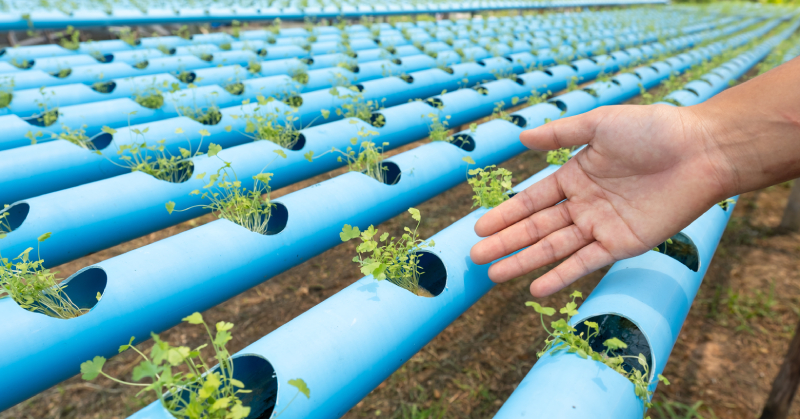
PVC and CPVC pipes play a crucial role in agriculture and irrigation systems due to their lightweight design, corrosion resistance, and long-lasting performance. PVC pipes are widely used for delivering water to fields through main and lateral lines, drip irrigation systems, and sprinkler setups. They are ideal for transporting large volumes of water efficiently over long distances without leakage or degradation. CPVC pipes, though less common in general irrigation, are used in specialized agricultural applications that involve high-temperature water or chemical fertilizers, thanks to their enhanced heat and chemical resistance. Together, these piping solutions help farmers optimize water use, reduce operational costs, and ensure reliable crop irrigation year-round.
Chemical Processing Industry
PVC & CPVC – Applications and Uses in the Chemical Processing Industry
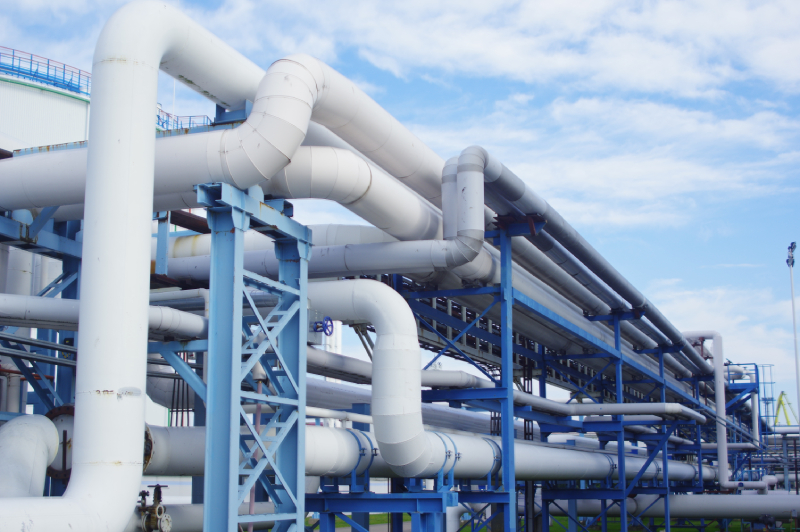
PVC and CPVC pipes are essential due to their strong resistance to corrosion, chemical attack, and high temperatures. PVC pipes are typically used for transporting acids, alkalis, and other corrosive substances at lower temperatures, offering a cost-effective and reliable solution for non-pressurized systems. CPVC pipes, with their enhanced heat resistance, are preferred for handling hot, aggressive chemicals and pressurized fluids. Their non-reactive properties ensure purity in chemical processing, reduce the risk of leaks or contamination, and extend system lifespan. Additionally, both materials are lightweight and easy to install, making them ideal for complex industrial piping networks.
Manufacturing & Processing
PVC & CPVC – Applications and Uses in Manufacturing and Processing
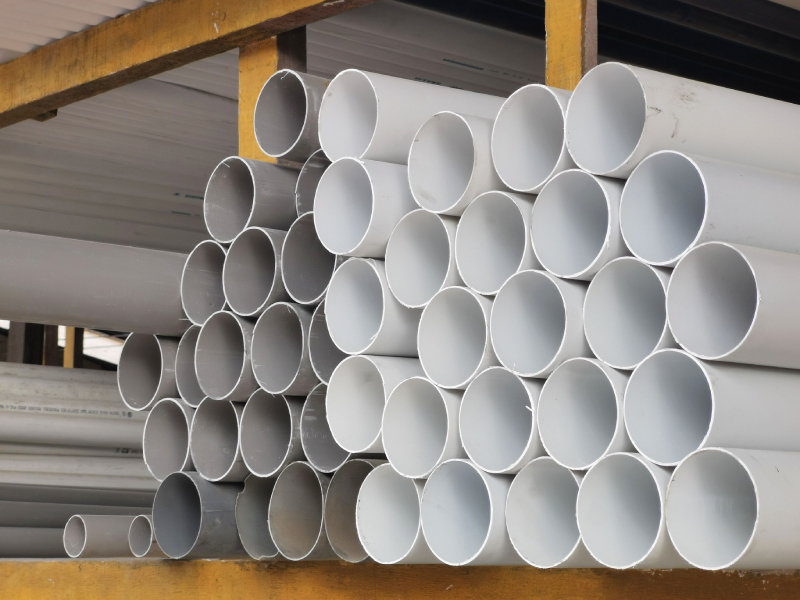
PVC and CPVC pipes are essential for handling a wide range of fluids and gases due to their chemical resistance and durability. PVC pipes are commonly used for transporting non-corrosive liquids, compressed air, and low-temperature fluids in systems such as cooling, ventilation, and waste handling. CPVC pipes, with their ability to withstand higher temperatures and aggressive chemicals, are ideal for conveying hot water, acids, and industrial solvents in chemical processing plants, food and beverage facilities, and pharmaceutical production. Their lightweight nature, ease of installation, and resistance to scaling and corrosion make them a reliable and cost-effective choice for maintaining efficient and safe operations in industrial environments.
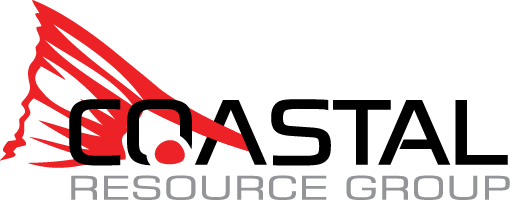
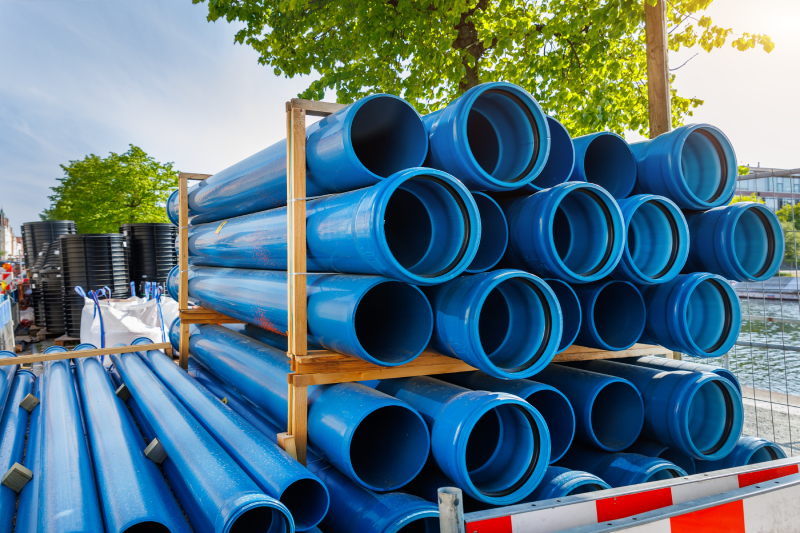





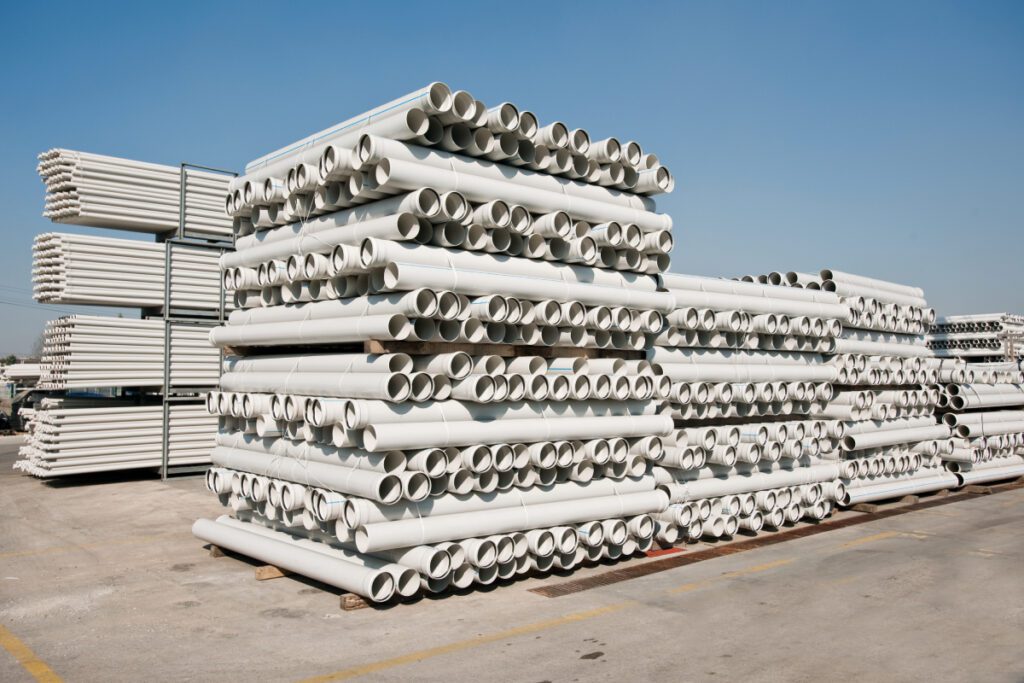
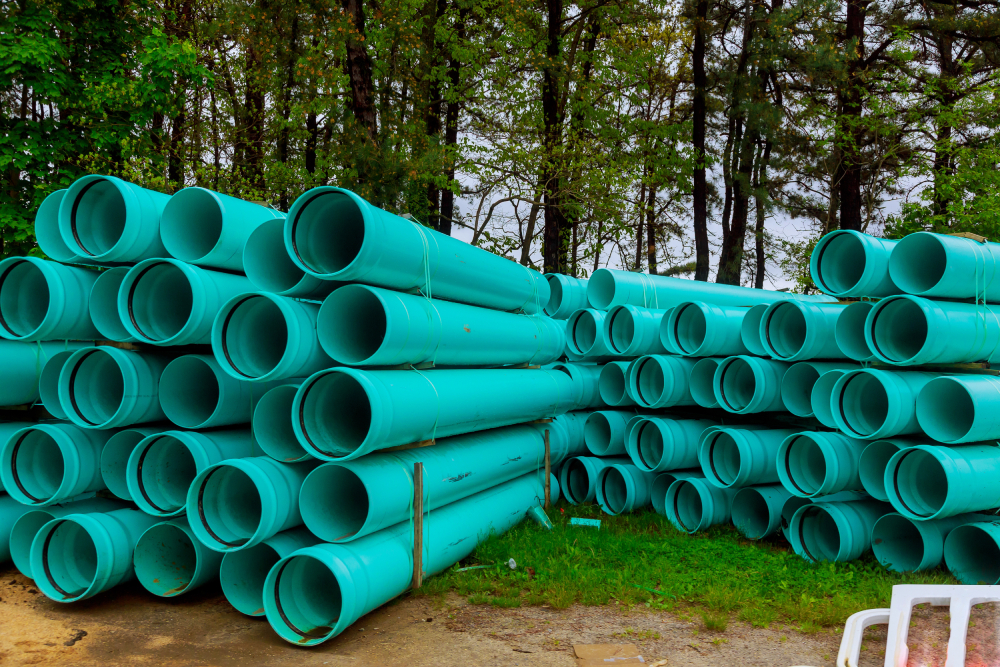
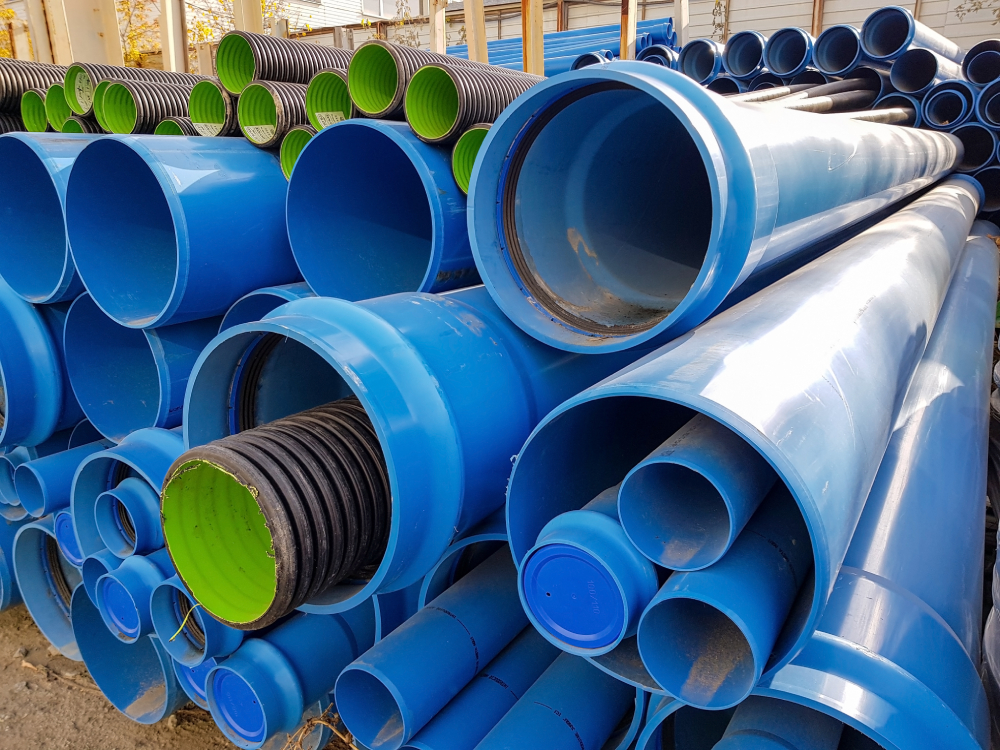
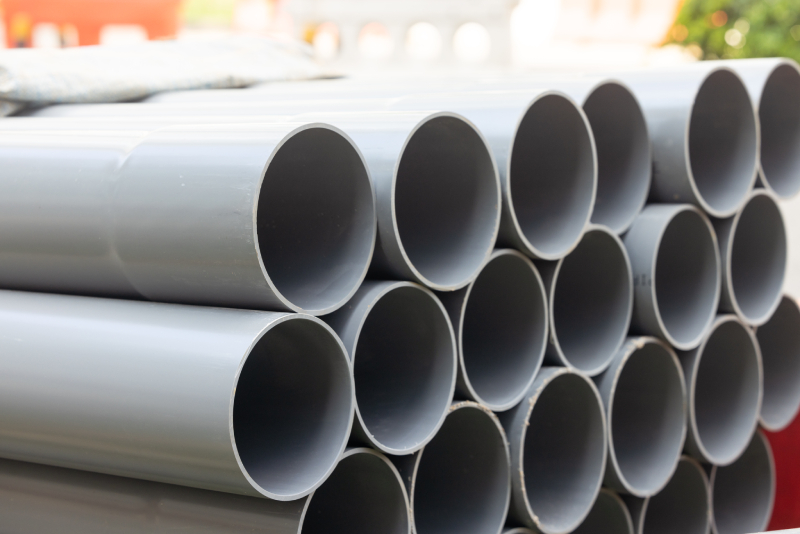 PVC and CPVC pipes offer durable, high-quality performance for long-term use in tough conditions.
PVC and CPVC pipes offer durable, high-quality performance for long-term use in tough conditions.